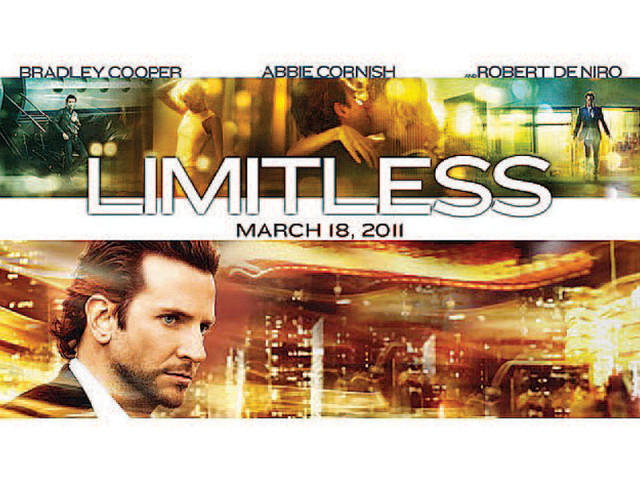Limitless: Illusion of intelligence
Science-fiction or future science? Those were my first thoughts when the plot unravelled in Limitless.

That all changes when his ex-brother-in-law introduces him to NZT, a revolutionary new drug that allows the user to tap the full potential of their mental capacity. That is the premise of Limitless, a thrilling journey of everyone’s wish-fulfilling fantasy of being unstoppable.
Eddie experiences the true joy of everything he had ever learnt. He processes unlimited streams of data, recalls everything he has ever read, seen or heard, multitasks at high speeds and learns any language in a day. After completing his entire book within a couple of days and bedding numerous supermodels, he realises that the true potential of the drug is far too overreaching to restrict himself to his current pay-grade.
Eddie takes Wall Street by storm, bankrolling his scheme with money from Russian mobster Gennady (Andrew Howard), who ends up haunting him till the very end of the story. Next thing you know, he has been given the task of brokering the largest merger in corporate history by energy magnate Carl Van Loon (Robert De Niro).
The movie successfully addresses drug-abuse by creating a parallel between NZT and prescription amphetamines in the US that serve to focus concentration without maximising brain usage. As Eddie struggles to convert this illusion of intelligence into reality, he realises that his new life may have a deadly price. He begins having strange blackouts and is soon facing an investigation for murder as he subsequently dodges both mysterious stalkers as well as his Russian bankroller. At the same time he attempts to hang on to his dwindling supply of NZT long enough to outfox his enemies.
The imagery of the film effectively captures Eddie’s ups and downs on the drug — the whole world becomes brighter and more colourful when Eddie is on NZT. When the drug starts to wear off, you can feel everything turning grey and as a viewer you feel the need to root for Eddie at his lowest points.
Cornish, De Niro, and Howard do a good job, given their relatively little screen time. Even though most viewers, sensitive about drug-related issues, will end up dismissing the movie for glorifying drug use, the bottom-line for me was the fact that Bradley Cooper managed to keep the viewer glued to the screen, waiting for him to resolve the seemingly impossible problem ahead of him. The final resolution is quite vicious, almost out of character with the rest of the film, leaving the viewer with a sense of despair, wondering whether it is the very last hurdle that he crosses in his bizarre trip, whether he has at last perfected the balance and truly turned the illusion into his own reality.
Published in The Express Tribune, Sunday Magazine, April 10th, 2011.



















COMMENTS
Comments are moderated and generally will be posted if they are on-topic and not abusive.
For more information, please see our Comments FAQ